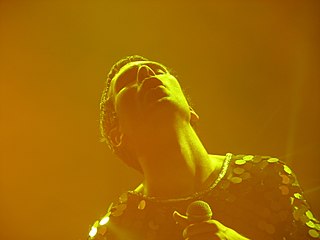A Quote by Peter Adamson
What the soul is doing is kind of walking through the forms, and so our experience of thinking isn't normally this kind of pure intuitive insight that intellect gets, and that intellect must get right, because it's always identical to its objects, it's always the same as the forms that it's thinking about.
Related Quotes
The soul must be distinct from intellect because even at its best, what the soul does when it's thinking, is it thinks linguistically, it thinks in a temporarily extended way, so it for example, might go through the steps of an argument chain, as if you were going through a syllogism and seeing that something followed from the premises, whereas intellect simply grasps the forms.
?"Intellect is the knowledge obtained by experience of names and forms; wisdom is the knowledge which manifests only from the inner being; to acquire intellect one must delve into studies, but to obtain wisdom, nothing but the flow of divine mercy is needed; it is as natural as the instinct of swimming to the fish, or of flying to the bird. Intellect is the sight which enables one to see through the external world, but the light of wisdom enables one to see through the external into the internal world.
It is all, as usual, paradox. I have to use what intellect I have in order to write books, but I write the kind of books I do in order that I may try to set down glimpses of things that are on the other side of the intellect. We do not go around and discard the intellect, but we must go through and beyond it.
I've always seen process of crafting as part of the thinking process. It really forms the gestation of the work. I'll get an idea; I want to express this idea, sometimes I'll start it, but during the process of making the object - if it's an object or a painting - it changes. It never goes in a linear progression from A to Zed. It's always this kind of circuitous, stumbling, groping in the dark kind of process of evolving.
People often talk about Plotinus' system. The reason they do this is that Plotinus postulated a kind of series or chain of principles, so at the top there's what he called the One. Below the One is what he called Intellect. Below Intellect is Soul, and the effect of the soul is the physical world that we actually live in.
I guess I've always had such an identity crisis when it comes to other people's understanding of me. I don't feel it in myself but from an outsider's point of view, I can see they must be thinking, "Who the hell does this guy think he is?" But recently I've been thinking, okay, a white guy can't sing soul, but would a black person be made exempt from singing opera because it's not a tradition that belongs to them? It's the same kind of argument.
Another problem about writing about politics in the "age of globalization" is that so much of the violence in the form of war and also in the forms of institutional violence - sweatshops, child labor, victimization of people economically - happens elsewhere and out of sight. And when we do know about it and need to witness it, it's always mediated by images of one kind or another, so you're kind of stuck trying to write about what it's like trying to be you living your life thinking about and experiencing this stuff in that way.





























